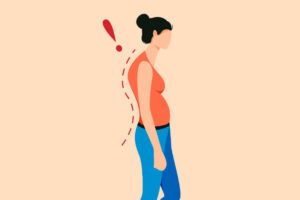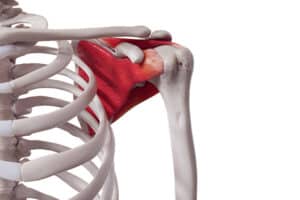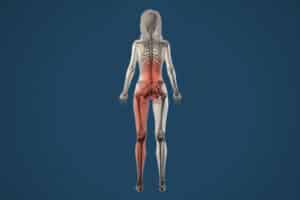Recovering From Car Accident Injuries?
If you are recovering from car accident injuries, it’s important that you take the appropriate steps to recover quickly. Too often I see patients whose recovery has been drawn out needlessly over several years due to lack of knowledge on the recovery process! I’ve put together a list of ten tips to help you get on with your life after a motor vehicle accident that results in injuries.
Ten Tips To Recover As Fast As Possible
#1 Commit To Getting Better
It’s important that you are 100% committed to getting better! Accept that it may take quite a bit of time depending on the severity of your injuries before you are doing the activities you did prior to your accident. I recommend leaning on close family members for support during your recovery journey. This may mean asking your sister to pick up your son from preschool so you can attend therapy or asking your husband to take on vacuuming the house!
#2 - Check In With Your Doctor Regularly
Your doctor and your rehab therapists are a huge asset in this journey. Use them to your advantage. Check in with your doctor every month to make sure you are on track with your recovery and to ensure you are doing everything you possible can in terms of treatment. Each persons journey is different. What works for one person may not work for the other.
Talk to your doctor about the pros of different treatment options such as physiotherapy, massage therapy, chiropractic treatment, kinesiology and acupuncture. Consider attending psychology or counselling sessions if you suffer from anxiety or depression related to your accident.
#3 - Make Time To Attend Therapy
Something as important as therapy appointments need to be carefully scheduled into your life. Our lives are busy and you are likely juggling work, family and other commitments. Make therapy a priority. Take a look at your other commitments – are they important? It may be time to step down as assistant soccer coach on your sons team so you can fit in your therapy.
It’s crucial that you are attending therapy appointments at an ideal frequency to get the most out of the treatment. Talk to your therapists to find out how often you should attend to get the most out of treatment.
# 4 - Be Aware Of Your Posture
How you stand and how you sit dramatically will influence the amount of pain you feel. Take a look at your posture in the mirror. Ask your therapist about how you can improve your posture. Are you bent forward? A bent forward posture will irritate your neck and back symptoms.
Not only is how you sit and stand important, it’s also important that you don’t stay in one position for too long. If you need to sit at a computer station for work, make sure you set an alarm that goes off every 30 minutes reminding you to take a standing break.
If you are needing to stand for an extended period of time, for example making dinner, consider taking seated breaks or sit at a table to chop vegetables. Break up the task into smaller tasks to pace yourself. The same is true with housework.

#5 - Avoid Activities That Increase Your Symptoms
It may be common sense to avoid activities that increase your pain symptoms but it’s worth mentioning it. I don’t know how many patients I’ve heard say their back pain is worse after gardening or vacuuming yet they continue to do the activity!
Keep a journal of what activities you do. Then if you notice your neck pain, for example, increases, take a look at your journal to see what you did differently in the last couple days. This may help you to see that it’s too early to return to knitting or baking.
#6 - Set Up Your Computer Station Ergonomically
It is worth your time and effort to optimize the ergonomics of your computer station. Is your computer monitor positioned ideally or is it too low causing you to bend your head forward out of alignment? A sit stand desk may help you tolerate working better.

#7 - Ensure Your Mattress & Pillow Provide Support
It’s the job of your mattress and pillow to support your spine all night long. Exchange your mattress for a new one if it’s more than 10 years old. Ensure your pillow is supportive enough without being too thick.
#8 - Participate in Kinesiology
It baffles me when patients start kinesiology treatment or a rehab exercise program two years after their car accident! It’s crucial that you start gentle exercises as soon as you can tolerate it under the supervision of your physiotherapist or kinesiologist. Performing core exercises and simple strengthening exercises early on accelerates the rehabilitation process. Go for walks as tolerated.
#9 - Return To Work Gradually
If your injuries are severe, they may prevented you from working at your job position. When you are ready to return to work (if you’ve been off work), it’s a good idea to return gradually. By gradual, I mean start with working four hour shifts three days per week if you would normally work 40 hours per week. See how your symptoms are after shortened durations of work activities before increasing your hours.
Often patients are more successful with returning to work if they return gradually over a four to eight-week period. A work conditioning program may be helpful.
#10 - Return To Leisure Activities Gradually
It’s recommended that you slowly increase the duration you spend doing leisure activities. For example, if you were an avid hiker before your accident, try going on a fairly easy hike for 30 to 45 minutes and see how you feel before tackling a longer, steeper hike.
Talk to your physiotherapist or kinesiologist to determine when it’s appropriate for you to return to leisure activities. Some activities are risker than others and should be postponed until your almost 100%.

If you have car accident injuries, our physiotherapists and kinesiologists can help! Call us today or book online.








